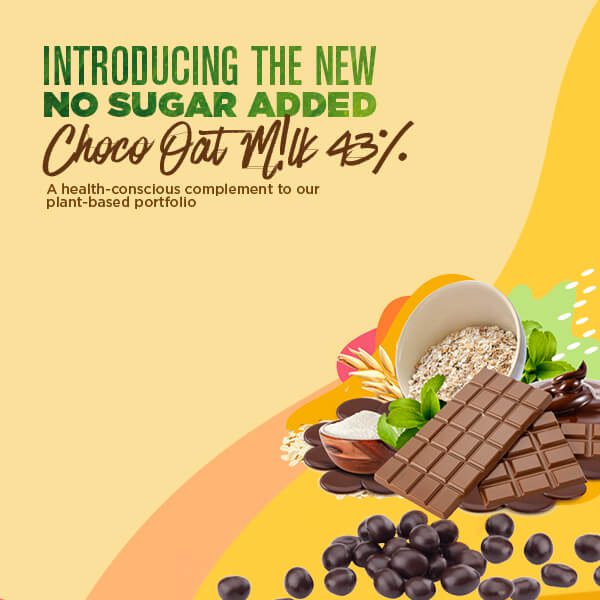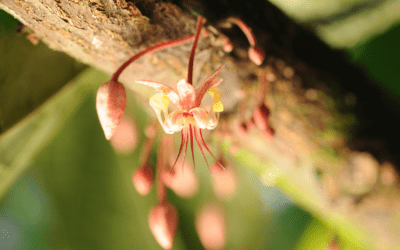| Refreshed and republished on December 27th, 2022 |
|---|
| This post was originally published on January 8th 2021, and has been enhanced and updated for accuracy and comprehensiveness. |
Consumption habits have changed. Consumers are increasingly transitioning to vegetarian or flexitarian diets in search of healthier and more ethical lifestyles. The rising demand for sustainable products has led to the rapid expansion of plant-based alternatives including plant-based chocolate.
Dive into the most updated data on the plant-based chocolate category trends with the below menu:
- What is plant-based chocolate?
- The rise of the conscious consumer.
- Market opportunities of plant-based chocolate
- The future of plant-based chocolate

What is plant-based chocolate?
Plant-based chocolate is both a novelty and an ancient recipe. On the one hand, the majority of dark chocolate that can be found on the market—percentages of cacao ranging from 65 to 85%—have always been plant-based since they don’t contain milk.
However, the real plant-based transformation occurring in the chocolate market is taking place in the milk chocolate segment; with new and exciting dairy alternatives that allow consumers to have the indulgent taste they enjoy while reducing their environmental impact. In response, plant-based milks such as those made from rice, coconut, soy, almonds, and oats have become increasingly sought-after alternatives.
The rise of the conscious consumer
Why? It’s all about consumers. One-third of Americans are actively reducing their meat and dairy consumption, followed by a small number identifying themselves as vegetarian or vegan. Overall, flexitarians represent the largest growth opportunity for plant-based foods. Furthermore, in the UK, 14% of adults (7.2 million) were following a meat-free diet at the start of 2022, with 8.8 million more expected to follow suit by 2023.
In marketing, they’re known as ‘conscious consumers’ and they have four main motivators:
- Health and nutrition According to 2020 research carried out by Accenture, 64% of people shop with their health in mind. Similarly, a 2022 study from The Vegan Society, found that health was the primary motivation for cutting back on animal products. Lactose-free plant-based milks target consumers who avoid milk of animal origin in their diet due to either intolerance or allergies.
- Climate change The same Accenture study showed that 62% of consumers seek to reduce their impact on the planet. In this sense, the impacts of plant-based milk production are considerably lower than those of regular milk, from the perspective of greenhouse gas emissions as well as water and land usage.
- Sustainability As mentioned above, environmental concerns appear in the top reasons for switching to plant-based diets. This is leading to increased scrutiny of brands and demand for greater transparency. According to Capterra’s 2022 report 88% of people surveyed said they checked the sustainability credentials of a product before purchase.Additionally, a second Accenture study (carried out during the Covid-19 pandemic) found that 68% of consumers are limiting their food waste, 60% are more cost conscious about products, and 54% are making more sustainable choices.
- Animal welfare Finally, animal welfare is another key decision factor in adopting a plant-based diet. Especially for vegans or vegetarians. A 2021 global survey found that 90% of vegans listed animal welfare as their top reason for going vegan.
Market opportunities of plant-based chocolate
Greater consumer awareness of animal welfare, health and sustainability means the plant-based foods market could make up to 7.7% of the global protein market by 2030. With a value of over $162 billion, up from $29.4 billion in 2020, according to Bloomberg Intelligence (BI).
As part of this growth, the global vegan chocolate market was valued at $1.0 billion in 2022 and is projected to grow at a CAGR of 15.5% to reach a value of $4.0 billion by 2032. In 2022, launches of plant-based, vegan and vegetarian chocolates worldwide corresponded to 20.7% of all new chocolate products having a growth of more than 7% compared to 2017, according to launches reported by Innova Market Insights.
By region, Asia Pacific is expected to be the fastest-growing regional market during the forecast years due to the rising cases of lactose intolerance and an increasing number of vegans in the region; whereas, North America dominated the global vegan chocolate market accounting for a revenue share of over 37% in 2020.
The future of plant-based chocolate
Considering the current premium chocolate confectionery market, and growing vegan and flexitarian population, plant-based innovation offers a wealth of opportunities for chocolate brand owners.
However, according to Innova Market Insights “Consumers need to get familiar with vegan alternatives. So they are likely to play it safe in the beginning by trying popular flavours first.” As such, the main added flavours requested by consumers follow tradition; with hazelnut and caramel or red fruits like raspberry and strawberry, continuing to top chocolate product launches.
Luker Chocolate is no stranger to the changes that are impacting the industry. That’s why we’ve worked to develop a full range of plant-based chocolate ingredients – including our latest no added sugar Oat M!lk couverture.
 Click the image to download our OatM!lk Portfolio!
Click the image to download our OatM!lk Portfolio!
In this way, the centennial legacy of Luker Chocolate adapts to what will surely be the trend for the remainder of the century.


 Share
Share
 Tweet
Tweet
 Share
Share



